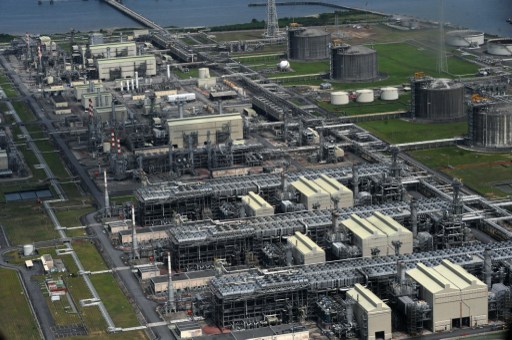Abuja, Aug. 15, 2023: The Nigeria Extractive Industries Transparency Initiative (NEITI) says for Nigeria to achieve a desired gas expansion, it requires an estimated 20 billion dollars annually to bridge the country’s gas infrastructure.
Dr Orji Ogbonnaya Orji, NEITI Executive Secretary, at the policy dialogue on Nigeria’s Decade of Gas Action plan on Monday in Abuja said given the shrinking fossil fuel investment landscape, clarity was required of infrastructure to be prioritised.
The dialogue was organised by the African Initiative for Transparency, Accountability and Responsible Leadership (AFRITAL) in collaboration with the Natural Resource Governance Institute (NRGI).
The Federal Government in Dec. 2020 rolled out the National Gas Expansion Programme (NGEP) to deepen the use of natural gas and make it a preferred form of cleaner, cheaper energy for both personal and industrial use.
In a remark, Orji said Nigeria had the largest gas reserves in Africa and the ninth-largest globally with gas reserves of over 200 trillion cubic feet (tcf). Am
“The Petroleum Industry Act (PIA) provides the most significant progress for the gas sector in strengthening governance and providing fiscal frameworks for the sector’s growth.
“The gas utilisation plan should show the market-driven opportunities that would successfully translate the gas plans into sustainable economic development.
“For the gas utilisation policy to work, there is a compelling need for deliberate ambitious investment in its infrastructure. This includes specific connectivity across upstream facilities to processing, power plants and other end uses.
“The network code provides a framework through third-party access to resolve some of the connectivity issues but to a large extent, achieving the desired gas expansion will require an estimated $20 billion annually,” he said.
He said that a new concept analysis would be required to demonstrate the new approaches the government intends to embrace to deliver on the gas infrastructure.
He recommended that the federal government should develop and publish a detailed, realistic, coated and comprehensive gas policy with clear roles for the state, and non-state actors and timelines to track periodic progress.
He urged government to develop an industry-specific linkage between the integrated gas policy with Nigeria’s energy transition policies with a supporting action plan built on a robust monitoring and evaluation framework to track implementation.
He further called for a detailed plan to end gas flaring through a private sector-led commercialisation programme and pursue an open, competitive and transparent gas flare commercialisation programme (NGFCP),” he said.
Earlier, Dr Louis Ogbeifun, Executive DirectorAfrital), had decried the fact that Nigeria is so rich in gas, but most of its citizens use firewood or coal for cooking with all its attendant health hazards.
“Over the years, Nigeria has behaved like the prodigal son by exporting mineral resources to earn dollars for consumption without savings, reinvestment in revenue, and employment generation ventures.
“These analogies reflect the contradiction of being a rich but poor nation. Rich because Nigeria is vastly rich and blessed with abundant minerals and energy resources but so poor that most citizens lack access to affordable electricity and other essential social and welfare benefits,” he said
He said in a bid to reverse the highlighted negative narrations, achieve energy accessibility, affordability, and sustainability as a country that the 2021-2030 government legislation tagged the “Decade of Gas Action Plan (DofG)” was enunciated.
According to him, If the government’s intentions are effectively implemented, Nigeria is expected to witness a vast gas Infrastructural development during the period.
He further said that part of the stepping stones towards achieving the goals of DofG was the construction of the 614km Ajaokuta-Kaduna-Kano gas pipeline to transport about two billion cf of natural gas per day.
“This and other initiatives are also aimed at deepening the usage of LPG and CNG in the country and ultimately expanding the Autogas policy, which would reduce dependency on petrol as our mainstay for transportation in the long run.
“Before the AKKP project, Nigeria conceptualised the Nigeria-Morroco Gas Pipeline, as an extension of the West African Gas Pipeline, which would run through some African countries with a possible linkage to European market.
“This project was conceptualised in 2016. Outside the NLNG project, the Nigeria-Morrocco Gas Pipeline project would meet the international focus even as the local expansion of the LPG and CNG are also being pursued.
“Let us hope that our leaders would cautiously navigate the rough edges of the coup in the Niger Republic to forestall the risks of sabotage of this project by international state and non-state actors,” he said.
Also speaking, Mr Aaron Sayne of NGRI called for tackling of forex and policy issues, investment and access to finance on gas project while indigenous players should take place of the International Oil Companies.
Mrs Oluremi Komolafe, Director, Gas, Ministry of Petroleum Resources however said it was committed to energy transition, adding that NGEP was making way towards its realisation, while Compressed Natural Gas engines conversion is ongoing hence production will be spurred to meet demand.














